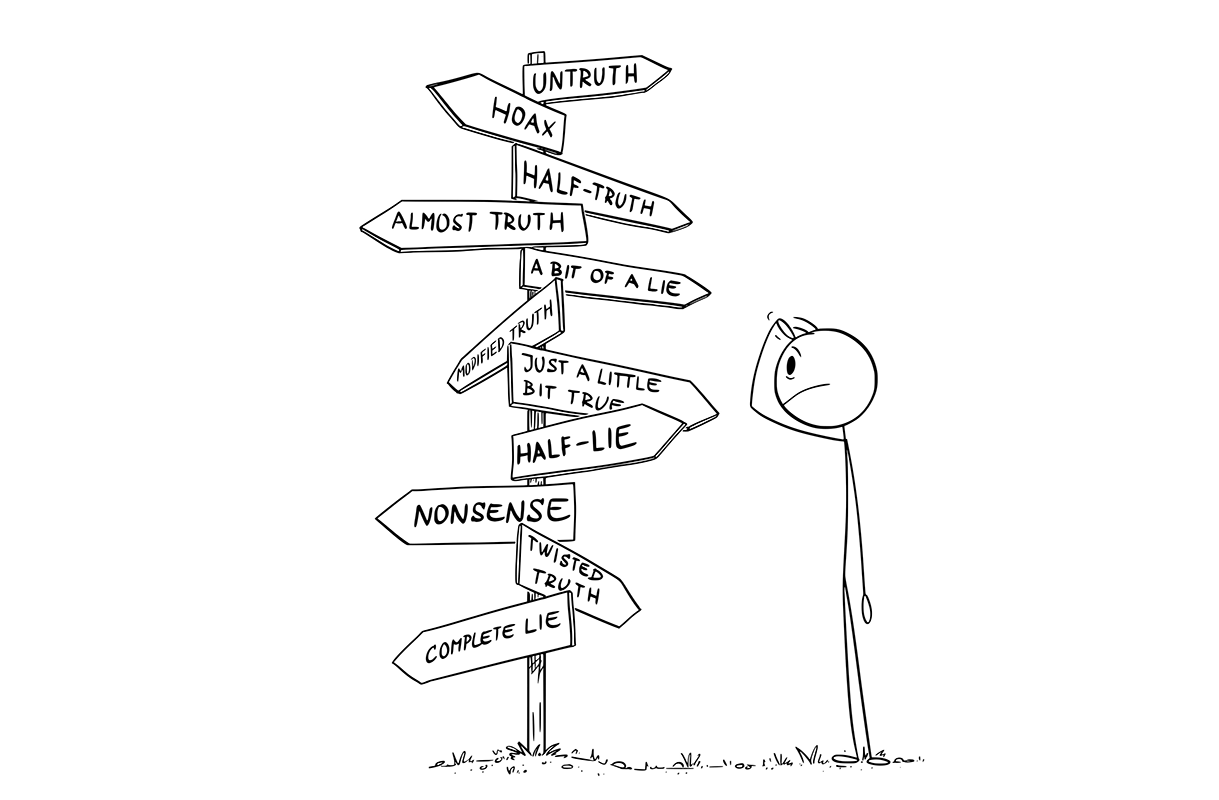Separating Truth from Propaganda

Edward Bernays was born in Vienna, Austria on November 22, 1891 and died in Cambridge, Massachusetts on March 9, 1995. He is generally regarded as among the originators of the field of public relations and what Bernays called “propaganda,” which is now called “advertising.” In fact, Bernays’ obituary called him the “father of public relations.” In his 1928 book Propaganda, Bernays sought to provide a theoretical foundation for the purpose and practice of public relations. Citing as authorities Walter Lipmann and Bernays’ famous uncle, Sigmund Freud, Bernays asserts that the masses of humanity are irrational and possessed of a “herd instinct” and because of this, people who were skilled at the use of crowd psychology and psychoanalysis could control the masses in ways desired by the controllers. In his 1945 book Public Relations, Bernays describes the field of public relations as the science of managing information, and the ways in which it is presented to the public, in order to be most advantageous to the disseminating organization. The late Jacques Ellul, in a book titled Propaganda: The Formation of Men’s Attitudes (1962), defined propaganda in part as “a manipulation of psychological symbols having goals of which the listener is not conscious.” Given these two descriptions of propaganda, one might suspect that “public relations” is a euphemism.
In 1927, the head of American Tobacco Company, George Washington Hill, hired Bernays with the initial assignment of increasing sales of Lucky Strike cigarettes among women, for whom smoking was generally thought to be a dirty habit that was beneath the dignity of ladies. Bernays began by seeking to convince women that they should smoke cigarettes rather than eat, since if women did this, they would quickly conform to the emerging standard of feminine beauty: thinness. Bernays used multiple types of communication media, like newspapers, magazines, photographs, and art works, to plant in people’s minds the idea that thin women were especially beautiful. He even persuaded a number of physicians to claim that for women, smoking is preferable to eating sweet foods and candies.
The campaign worked, and women began smoking more cigarettes, and sufficiently more to make Lucky Strike the fasted growing brand in the cigarette market. There was a problem in Bernays’ view, however, and that is that most people thought it unseemly for women to smoke in public. In discussions with a psychoanalyst named Abraham Brill, who had been a student of Freud, Bernays determined to call the cigarettes women smoked “torches of freedom,” and his advertising campaign featured a photograph known as the “Girl in Red,” who was a beautiful, and thin, young woman in red smoking a Lucky Strike. The campaign was effective at changing people’s attitudes toward women smoking in public.

Edward Bernays may have been called the father of public relations, but he was not the first person to discover how to manipulate what the masses of people think. The ancient Athenian philosopher Plato (d. 347 B.C.) wrote his most famous work, Republic, in about 375 B.C. This work is famous for its discussions of the meanings of justice and of education, but for our topic, the Allegory of the Cave is important. The purpose of this allegory is to explain what the reality we live in is actually like regarding truth and error, and importantly, how most people react to it. We are, Plato argues, like people who from birth are in a cave in which we are positioned and restrained in such a way that all we can see is the wall at the back of the cave. Behind us, out of our view, is a fire in front of which people are parading a succession of images, puppets and other figures, to produce a shadow show on the wall of the cave. Although the shadow play is wholly contrived, most people believe it to be the reality they inhabit because it is all they have ever seen, and so it never occurs to them to question it, or even how to question it. If, however, someone managed to get free from his constraints, stand up and turn around, he would instantly see that what he has believed to be true all of his life is false, and deliberately false. However, the fire and the shadow show the fellow is looking at are also a false depiction of what is real. Were he to walk around the fire and upward toward the exit from the cave, emerging into the sunshine and fresh air above, he would see sky, trees, streams, grass, birds, and so much else that is the world of our immediate experience, and, if he had a sufficiently sturdy constitution, he would feel the sense of freedom that comes from knowing the truth of things. He would also wonder why the elaborate fiction was prepared for the masses and by whom it is produced. In the moment, however, Plato argues that the newly awakened fellow would want to return to the cave to tell his friends about his discovery. In fact, however, Plato tells us that the man’s friends, upon hearing his tale, assuming they will actually listen to it, will reject his story as a mad fiction and they may even turn on him as a dangerous lunatic.
Deception is an effective tool in the effort to control people, and in this use of it, it is always an assault on the moral dignity of human beings because the purpose of lying is to use people as a means to the liars’ own ends. Americans of our colonial period spoke often of the fact that we each have the right not to be used for the purposes of others without our consent. The American Declaration of Independence announces boldly that governments derive “their just Powers from the Consent of the Governed,…” One important purpose of lying is to manufacture consent. Recently, the journal Modern Age published an essay titled “Propaganda-Proof Your Life,” by Ross Hougham.[i] The author discusses seven ways to prepare ourselves to be difficult, if not impossible, to deceive, and in the remaining space here, we’ll discuss several of them.
One important element in protecting oneself from deliberate efforts to deceive is to “create habits of personal discipline.” Hougham writes that “[l]ack of discipline blinds us to evil and metastasizes it. The solidity and stability that come from habits of personal discipline guard us from propaganda.” The author discusses three types of personal discipline. Moral discipline, we read, involves developing a moral “compass” and being true to it. His discussion of moral discipline is rather thin, and is thus not as helpful as it might have been, but a good place to start with moral discipline is at once to be firm in standing by what you believe to be morally true, and to remain open to learning and growth. However, not all change is growth, and so it should be understood that the direction of learning and growth is guided by what we already know to be true. Discipline over one’s time is found in seeking to use time productively in terms of exposure to good influences, and seeking in general to continue learning. It is difficult to deceive someone who is knowledgeable because the process of learning brings with it increasing discipline in thinking and analyzing. These skills allow someone to think through a claim one hears and to judge its reliability. Physical discipline is understood to be good not just for keeping oneself fit, but physical discipline is an important support to intellectual discipline and agility.
Hougham urges readers to become students of history because people who seek to deceive often attempt to generate fear by keeping people thinking only in the moment, and the “facts” will change quickly. There is a useful fashion now of distinguishing “thinking fast” from “thinking slow.” People in the business of deception want to keep others thinking “fast” because when people take the time to think “slow,” they can identify the holes in a story. But when constantly thinking fast, one’s focus is on what is being said, but not so much on what it means. Hougham contends that when people study history, they are better able to see that much of what we hear in social discourse has been said before, and it wasn’t true then, either.
It is important to read books, because propaganda “uses the events of the day or the feelings of the moment to manipulate the thoughts of victims before they have a chance to think.” Owing to the publishing process and the time it requires, reading books removes us from the heat of the moment and imposes on us the discipline of thinking carefully. Importantly, when a book is published, critics go to work analyzing the arguments in the book for their strengths and weaknesses. An effective practice when reading a book is to read a few reviews of it, for these will alert you to things to watch for when reading the book.
“Don’t enter the lions’ dens.” Hougham points out that propaganda will find us easily enough, so we shouldn’t seek it. How this is done will differ from one person to another. Someone may decide to have no presence on social media while another may believe it is necessary for business or some other purpose. The important thing to remember is that what we allow ourselves to think about matters. People readily understand that if one eats an unhealthy diet, it will have an unhappy effect on his health, but the same is true for the mind. The health of the mind is truth, and so it is an important personal discipline to take care about what one accepts as true. Examine, question, investigate, and the more important the presumed truth, the more care that should be taken. One important indicator of falsehood is that a claim is repeated often and from multiple sources, and any dissent is attacked, but not refuted, rather, the dissenters are personally demonized. This is not a practice used by people who are seeking to speak truthfully, because truth can defend itself. Efforts to manipulate must be protected against inspection because falsehood cannot survive scrutiny.
Finally, “proceed with courage and confidence.” Truth will, over time, win all contests. Our author captures this well, so we will conclude by giving him the floor. “In a world turning on the axis of propaganda, you will be able to step back, take in the whole picture, and choose your next steps wisely. The halls of history itself are filled with encouragement and guidance. Institutions stand as pillars and buttresses to support you, order your passions and impulses, and make you stand strong. As a part of history, these are part of your inheritance. Every tool you need is available if you look. Truth is stronger than deception, and it will win in the end.”
i] The essay may be found here: https://modernagejournal.com/propaganda-proof-your-life/246063/


